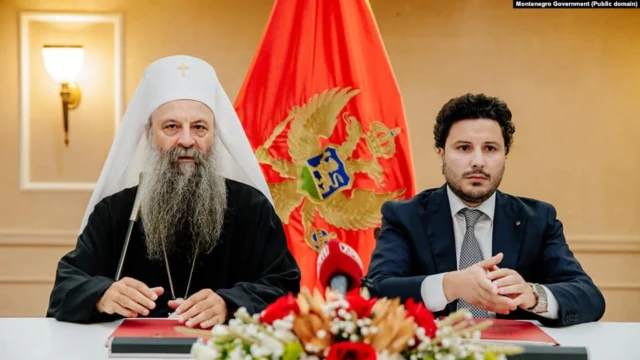PODGORICA — Montenegro’s parliament has passed a vote of no-confidence in the minority government of Prime Minister Dritan Abazovic in the wake of a controversial agreement between the government and the Serbian Orthodox Church.
Early on August 20, the 81-member legislature passed the resolution by a vote of 50 to one following a daylong debate. Deputies from Abazovic’s Civic Movement URA and the allied Democratic Front and Socialist People’s Party abstained from the vote.
“I declare that the government of Montenegro has lost its trust,” parliament Speaker Danijela Durovic said after the vote.
Abazovic’s government will continue to function in a caretaker capacity until a new government is formed. It will be the third government formed by the parliament that was elected in August 2020.
The move to oust the government was spearheaded by the Democratic Party of Socialists (DPS) of President Milo Djukanovic.
Djukanovic and his supporters were upset when Abazovic signed a controversial deal with the Serbian Orthodox Church, which does not fully recognize Montenegro’s independence from Serbia.
Critics said the agreement undermined Montenegro’s national interests, describing it as a tool for Serbia and Russia to increase their influence in the Balkan nation.
Abazovic has defended the agreement as a way to bring an end to long-standing property disputes with the church and move on to other matters.
The government also came under criticism for its perceived failure to move forward on European integration and a general perception of dysfunction.
Abazovic, 36 and an ethnic Albanian, became the first-ever Montenegrin prime minister from a minority ethnic group when he became premier in April with the support of the DPS.
Lawmakers will now try to put together a coalition of at least 41 deputies to submit a request to Dukanovic for a mandate to form a new government.
Montenegro broke away from Serbia in 2006, but about one-third of its population of 620,000 identify as ethnic Serbs. Political infighting in the country has slowed efforts to integrate with the European Union, although Montenegro became a NATO member in 2017. (Radio Free Europe)
